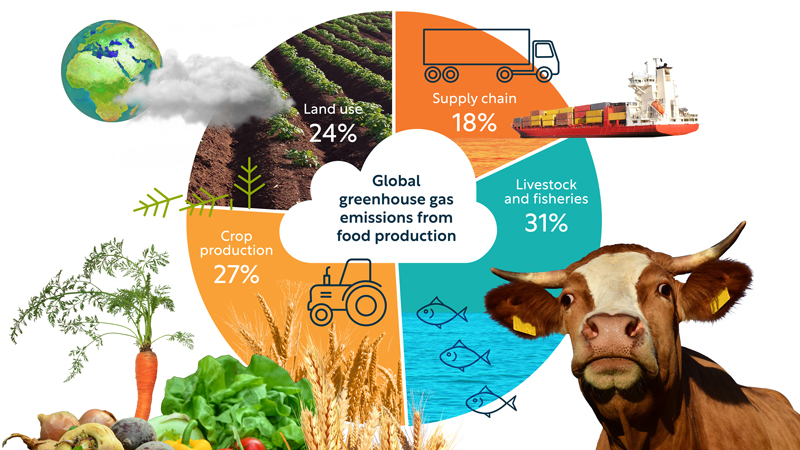Welcome to an engaging exploration of the Environmental Impacts of Food Production! Our mission is to uncover critical insights into sustainability by analyzing essential metrics such as land use, water consumption, and carbon footprints using robust analytical methods. By applying the CRISP-DM framework, we provide clear, actionable insights aimed at fostering sustainable practices in food production.
Let's shape a sustainable future, one bite at a time! 🌱
.
├── 📄 README.md # Project introduction and guide
├── 📁 data/ # Raw and processed datasets
├── 📁 scripts/ # Python scripts for data processing and analysis
├── 📁 visualizations/ # Impactful graphs, charts, and dashboards
└── 📁 presentation/ # Summary presentations and insights
- 🐍 Python (pandas, NumPy, Matplotlib, Seaborn, scikit-learn) — For powerful data analysis and visualization.
- 📓 Jupyter Notebook — Interactive coding and documentation environment.
- 💻 VS Code — Integrated Development Environment for scripting and analysis.
- 🌐 GitHub — Version control and collaborative development.
Our rich dataset covers 43 common food items and evaluates 23 environmental impact variables, including:
- 🌿 Greenhouse gas emissions per kg at various production stages (land use change, animal feed, farming, processing, transport, packaging, and retail).
- 💧 Water usage and eutrophication caused by agricultural runoff.
- Clearly define key sustainability challenges in food production.
- Formulate 7+ analytical questions to guide our exploration.
- Thoroughly explore data attributes, detect missing values, and assess distributions.
- Meticulously clean and preprocess data for accurate analysis.
- Conduct comprehensive Exploratory Data Analysis (EDA).
- Develop insightful visualizations for impactful storytelling.
- Critically assess results and effectively answer analytical questions.
- Clearly document findings and share summarized insights through accessible presentations.
- Regularly update and refine documentation.
- 📌 Interactive Visualizations & Dashboards — Clearly communicate critical findings.
- 📘 Comprehensive Documentation — Well-maintained and insightful README.
- 💻 Python Scripts — Efficiently organized analysis code.
- 🎤 Insightful Presentation — Clearly articulated business insights and recommendations.
Your insights matter! 🌟
Feel free to enhance this project:
- 🚩 Submit an issue
- 🔀 Create a pull request
Let's collaborate to make a lasting impact!
Special thanks to the Azubi Technical Team for providing this invaluable dataset. Your dedication to sharing essential sustainability data makes meaningful analysis possible.
📧 Email: naaowusu.addo@gmail.com
🔗 LinkedIn: LinkedIn Profile
nb: Here is a link to my medium article on this project! https://medium.com/@naaowusu.addo/from-plate-to-planet-why-what-you-eat-might-be-the-most-powerful-climate-choice-you-make-e5685844bfd1
Let's drive sustainable change together! 🌱✨
